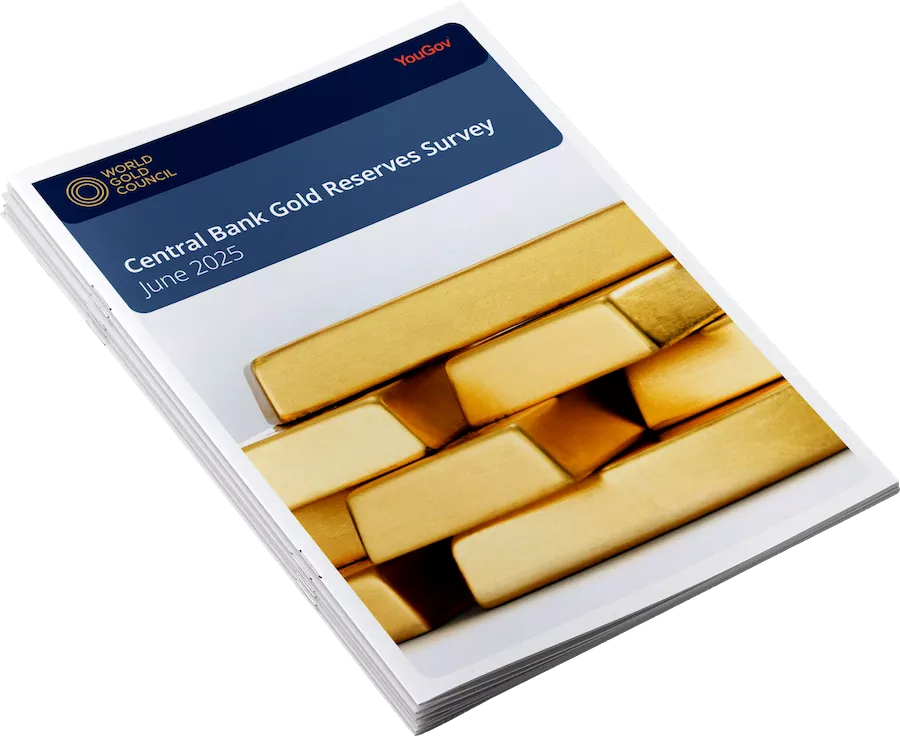
Beginning in 2018, the World Gold Council has collaborated with YouGov to conduct an annual global survey of central banks. This survey focuses on central banks’ perspectives on gold, as well as all aspects of how gold fits into their reserves management. The findings from these surveys enable us to get greater insight into central banks’ thinking around gold, both as a snapshot and over time.
Participation is voluntary, but these findings provide a detailed and representative view of attitudes towards gold amongst central banks. Individual responses are anonymous, with YouGov presenting them both in aggregate and segmented by advanced and Emerging Market and Developing Economy (EMDE) countries, as defined by the IMF.
Latest research
Looking for insight and analysis on gold? Our team of experts produce market-leading research and macroeconomic commentary on gold.
